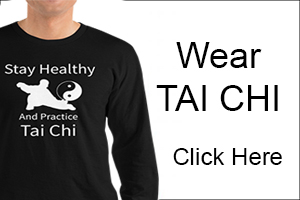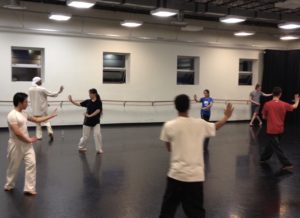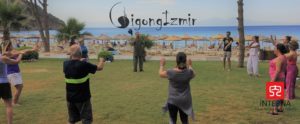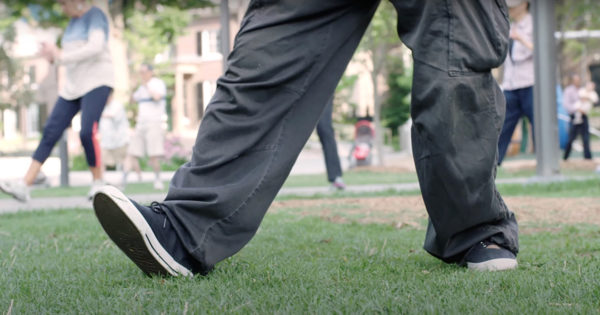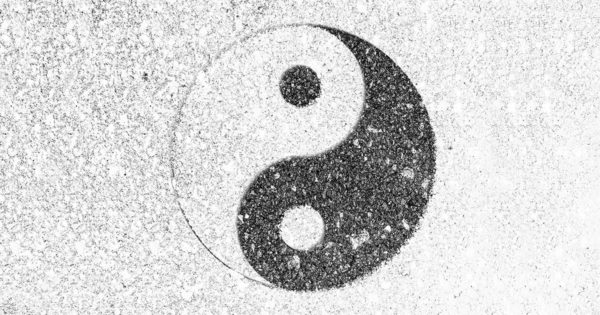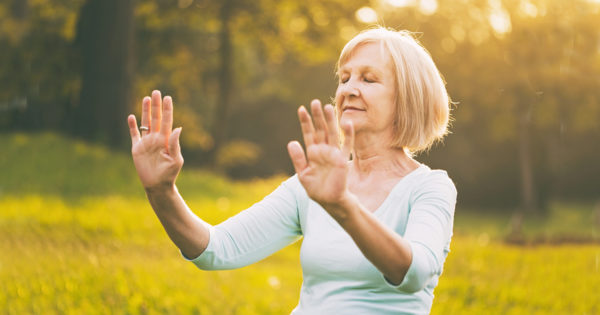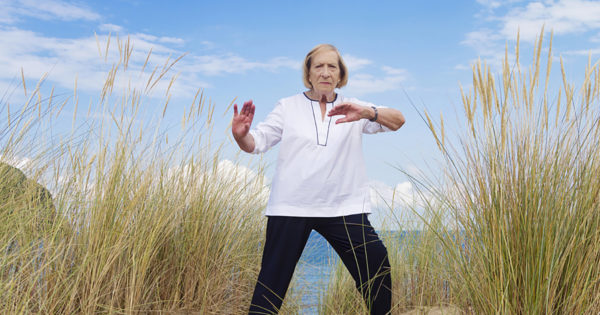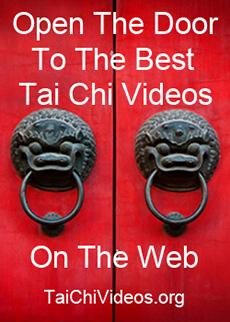Slanted FlyingJournal of Tai Chi Chuan
News
3 Reasons To Try Tai Chi This Weekend
Work/life balance is one of the current buzzwords in the human resources world. The theory, which dates back to the 1880s, is that workers who live balanced lives are happier and more productive. One rather depressing way of looking at this issue is that workers have been seeking work/life balance for about a hundred and fifty years, but they still haven’t found what they’re looking for.
Fortunately, individual balance is not nearly as elusive, and many people have found that balance in tai chi. Furthermore, thanks to the efforts of people like 18th-century labor organizer Robert Owen and 20th-century industrialist Henry Ford, you have some free time this weekend to explore something new.
Physical Exercise
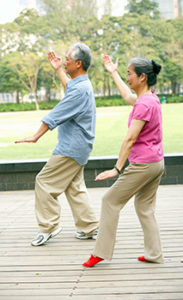 Before the tai chi wave washed ashore here in the United States, “physical exercise” was almost always synonymous with “physical exertion” and perhaps even “physical exhaustion.” After all, no pain no gain, right?
Before the tai chi wave washed ashore here in the United States, “physical exercise” was almost always synonymous with “physical exertion” and perhaps even “physical exhaustion.” After all, no pain no gain, right?
But rather than exercise through exertion, tai chi brings the same physical benefits through slow, controlled, and sustained movements that are targeted to strengthen and tone certain parts of the body. We know tai chi works in this way simply because it’s been around for so long. The discipline itself dates back to the Chinese Zhou Dynasty, which was about 3,000 years ago. Chen Wangting, whom many consider to be the founder of “modern” tai chi, developed many routines in the late 1670’s that are still used today.
In terms of muscular development, the tension from sustained movement has basically the same toning effect as the tension from weightlifting, ab crunches, or other forms of Western exercise. There is also considerable evidence that tai chi triggers improvements in respiration, heart rate, and other functions which many people believe that only high-exertion exercises, like jogging, can bring about.
Reduced Stress
In a nutshell, tai chi’s movement and meditation elements reduce stress.
Deep breathing is very calming, and slow movement usually reduces your heart rate. Moreover, the hand-eye movement has a calming effect on the brain. So, tai chi is exercise for your mind and spirit as well as your physical body. That’s a combination which is very difficult to find.
Furthermore, the meditation element is half of tai chi. It’s not a sideshow, like the mental element of running. This calmness helps unleash the parasympathetic “rest and digest” nervous system, and that helps people deal with both trauma-induced pain and chronic illnesses. If nothing else, tai chi meditation takes your mind off physical problems, at least for a little while, and that alone is often enough to bring some much-needed relief.
This is not to say that tai chi is a cure for any of these things, and there are plenty of tools available, like shoulder ice packs, that reduce pain as well. You can find more info here about such tools.
That being said, we all want better balance in our lives. Tai chi helps us understand that in order to have strong and durable bodies, we must also have strong and durable minds. And, just like physical exercise is the only way to strengthen the body, mental exercise is the only way to strengthen the mind.
Better Physical Balance
This is the big one for many people. For many seniors, a vigorous exertion-centered exercise routine is not really an option, because of physical limitations, mental roadblocks, or a little of both. Yet these individuals are among those who need physical exercise most.
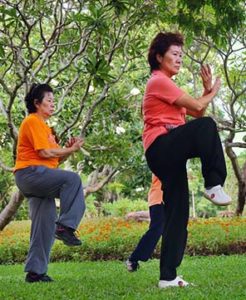 Tai chi to the rescue, because almost everyone can stand and move. Even if these things are not possible, there are many aquatic tai chi classes available, as well as other options for those with mobility impairments.
Tai chi to the rescue, because almost everyone can stand and move. Even if these things are not possible, there are many aquatic tai chi classes available, as well as other options for those with mobility impairments.
Now for the balance part. Tai chi’s slow, controlled movements lead to better body control. In one study, tai chi reduced falls by a whopping 45 percent. Potential like that should be enough to get seniors into tai chi studios in groves, because a majority of folks over 65 will fall and a majority of these individuals can no longer live independently thereafter.
There are plenty of other tai chi benefits in addition to these three, but hopefully, these are sufficient to at least spark an interest in this discipline. Since tai chi is one of those rare things that really is addictive once it gets in your blood, that spark should be all it takes. So, say your thank-you’s to Messrs, Ford, and Owen then pencil in your weekend tai chi class.

